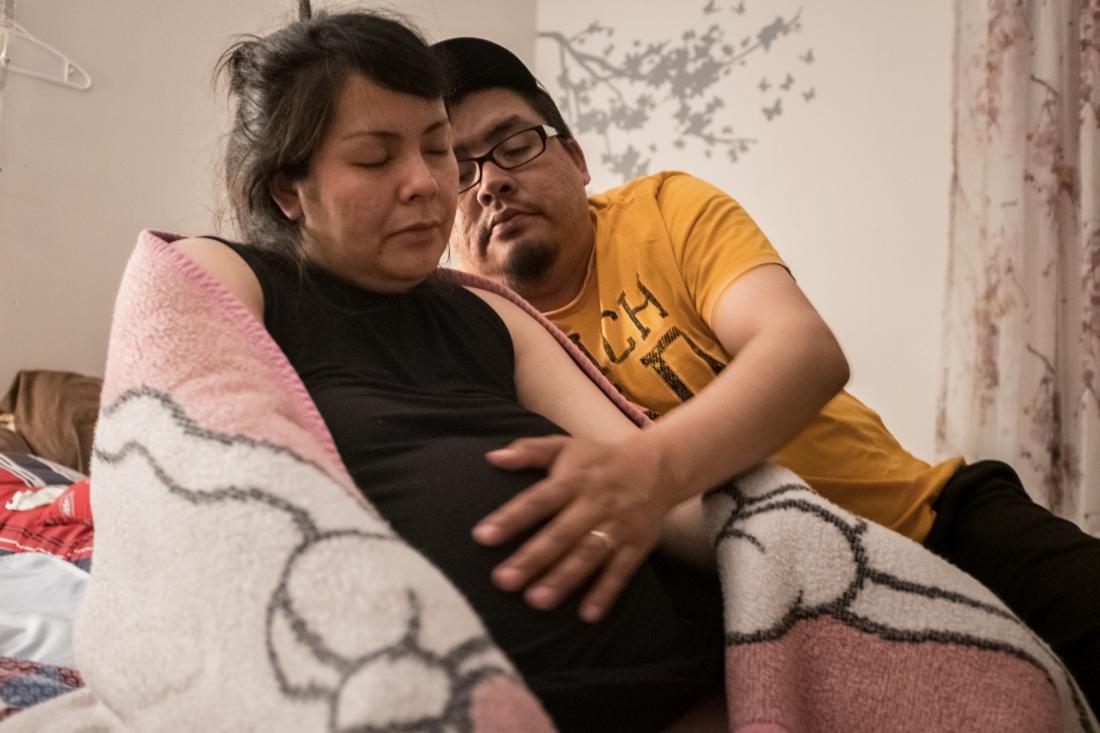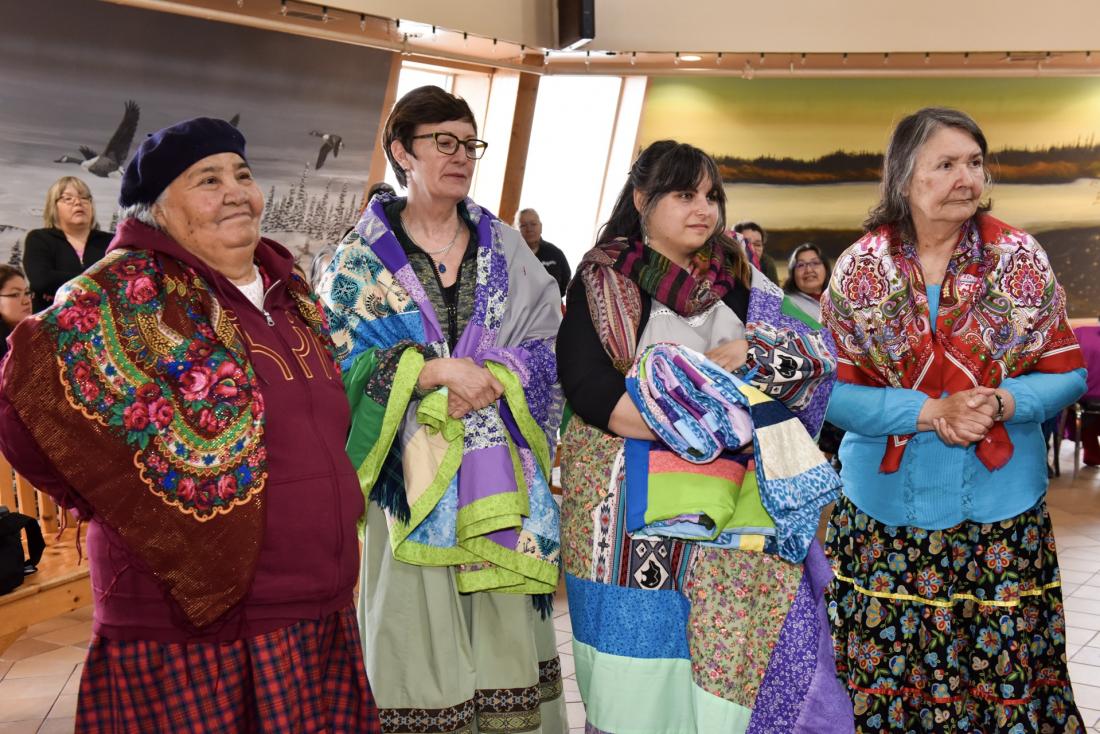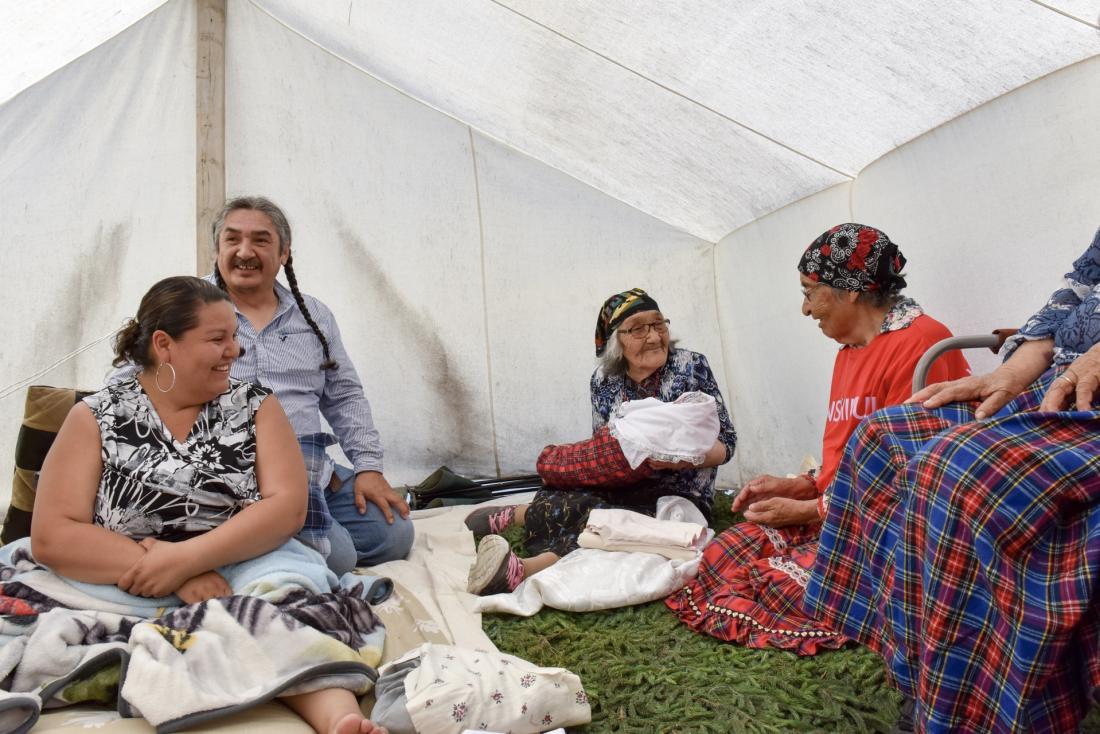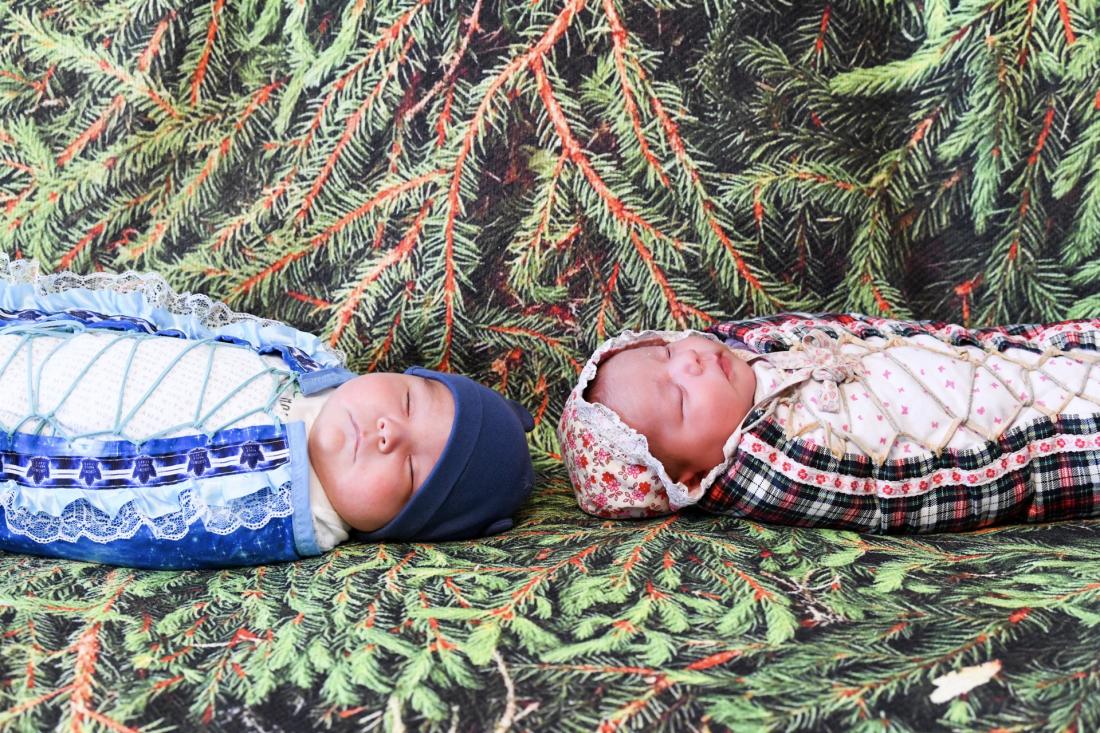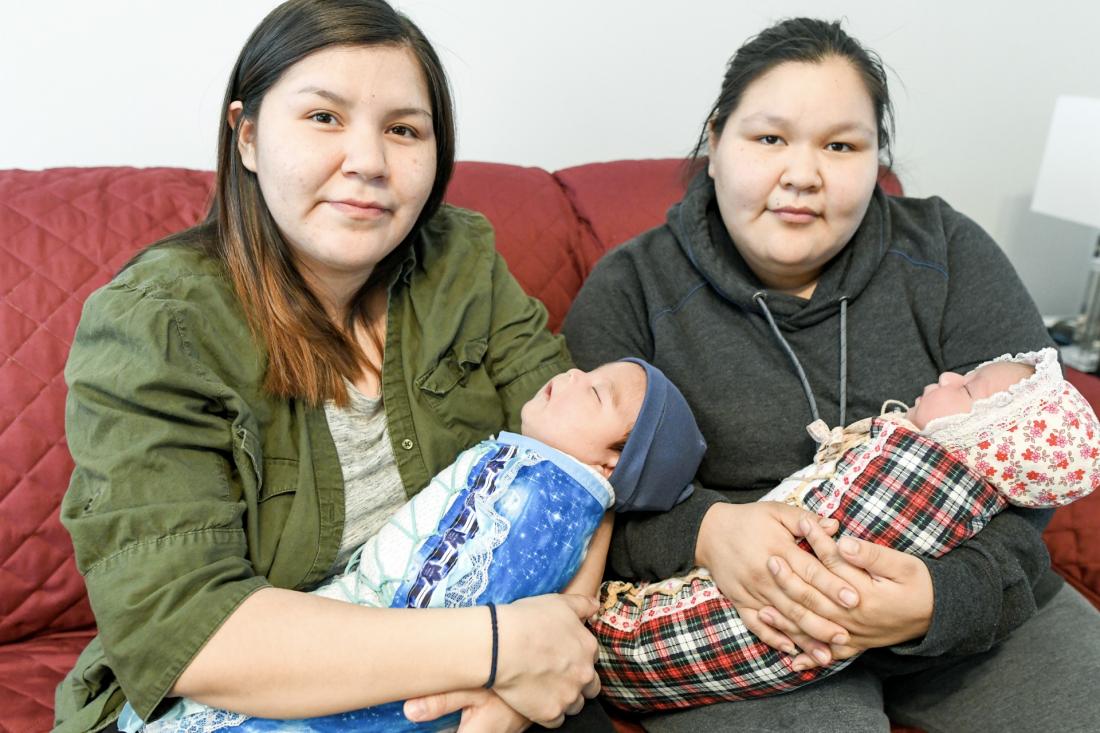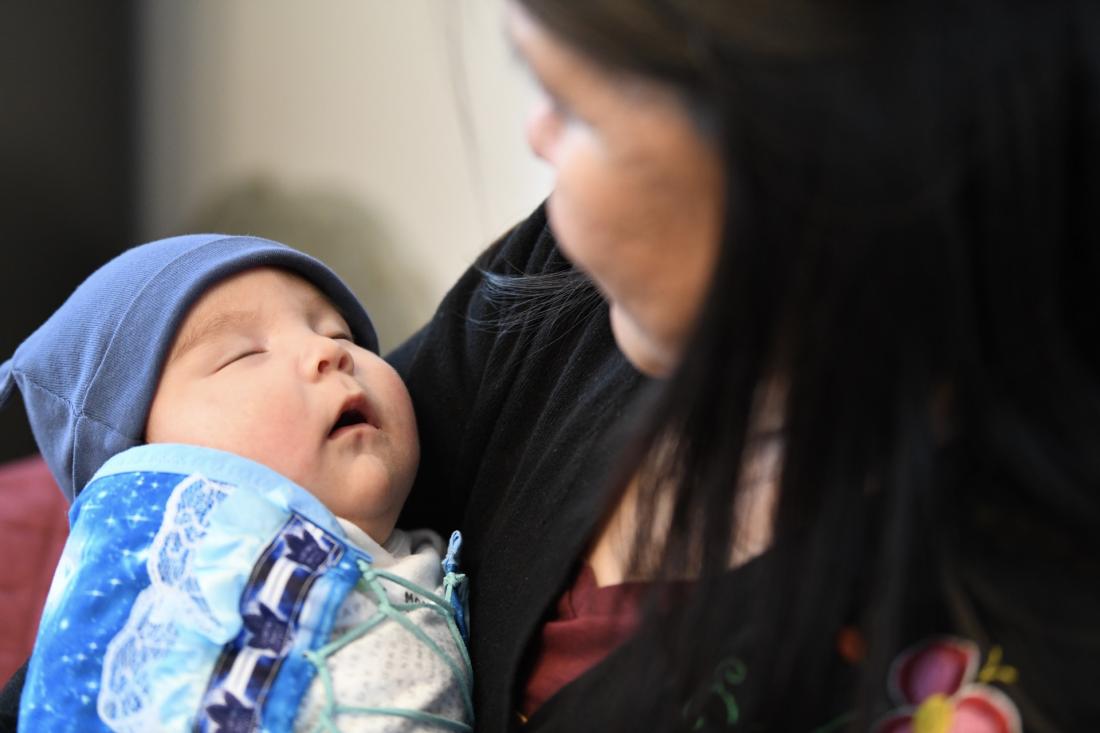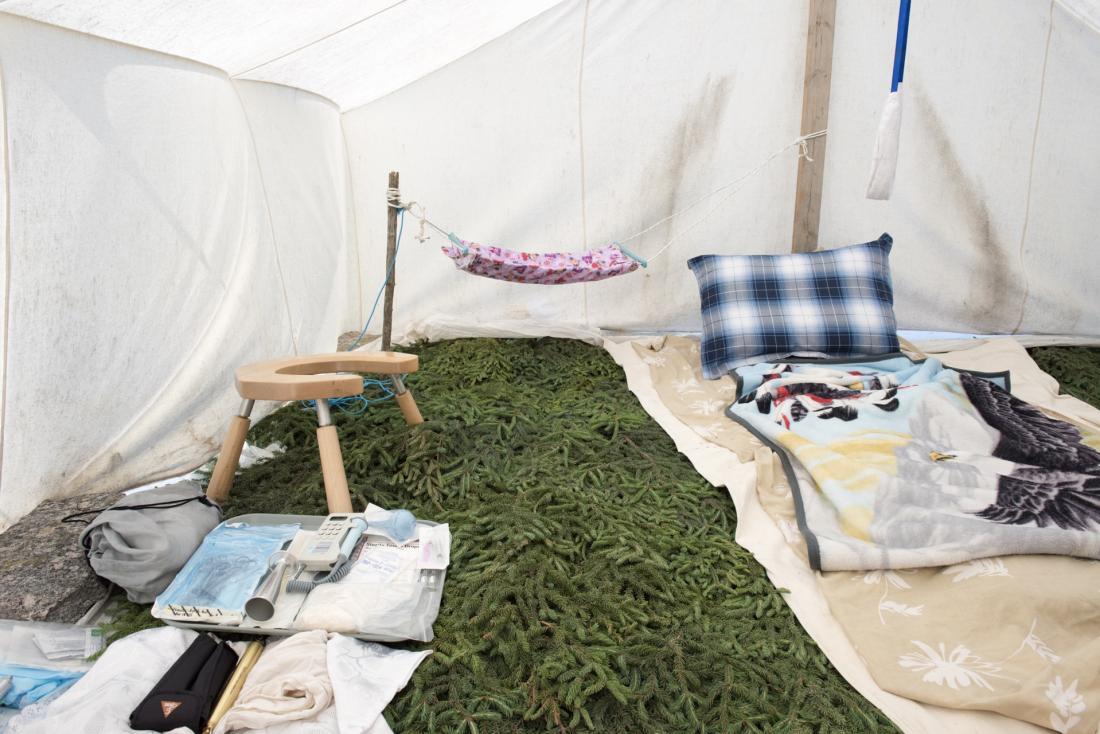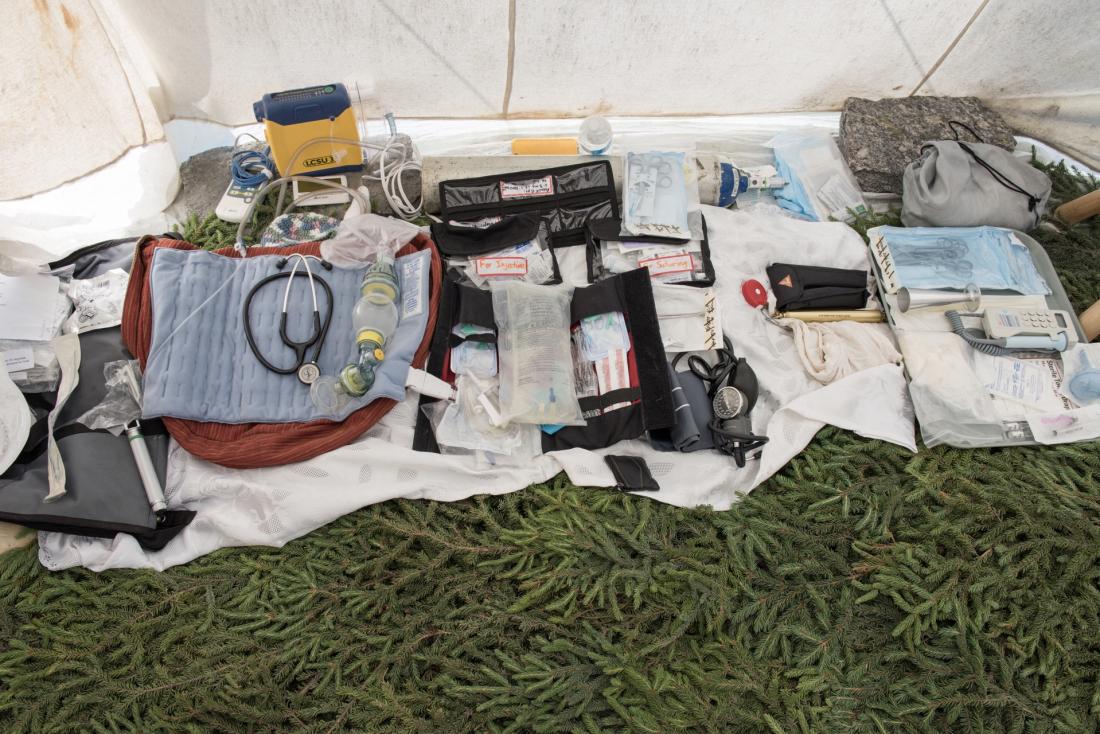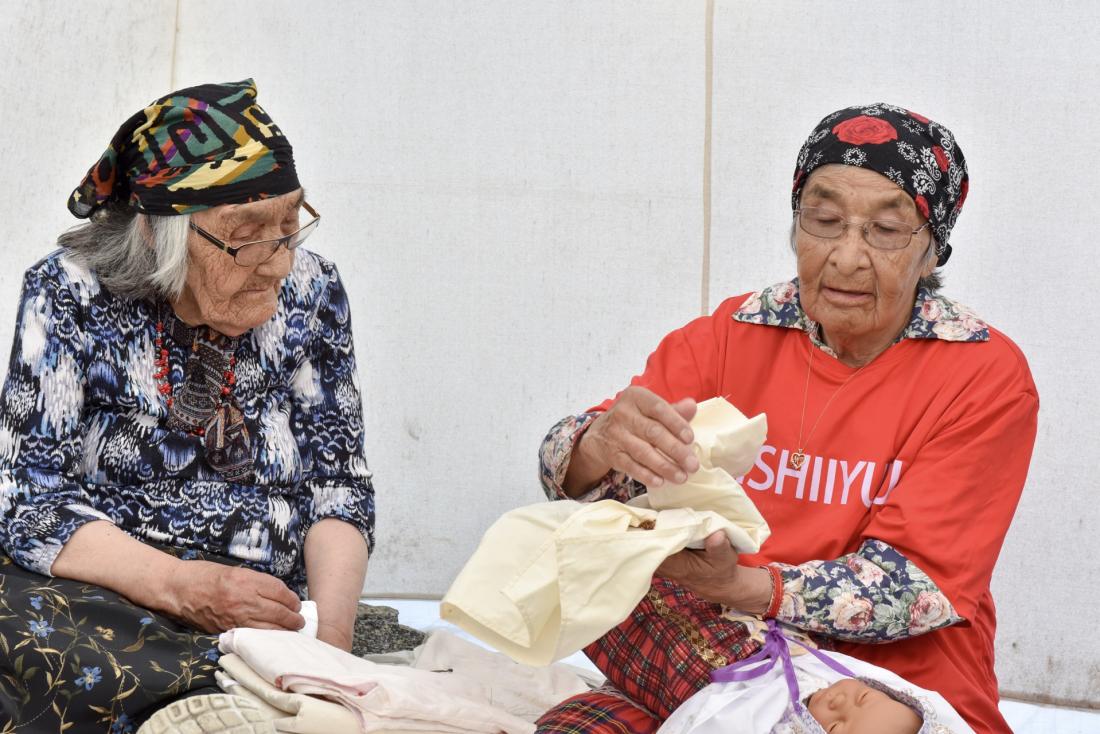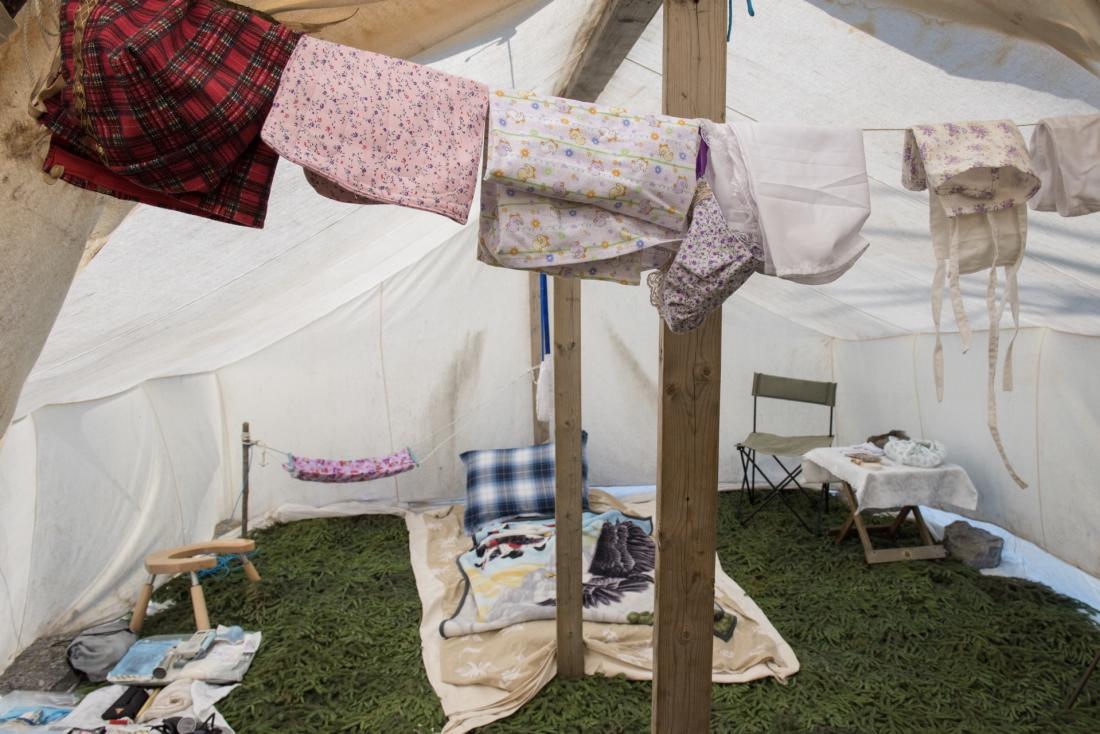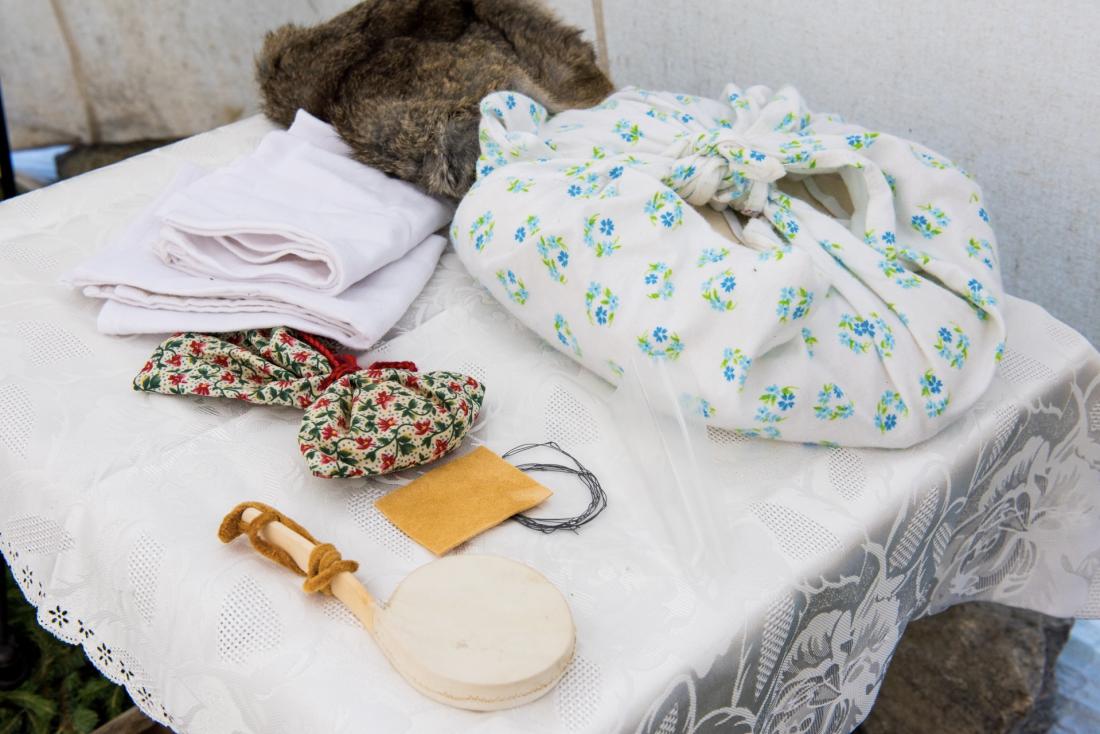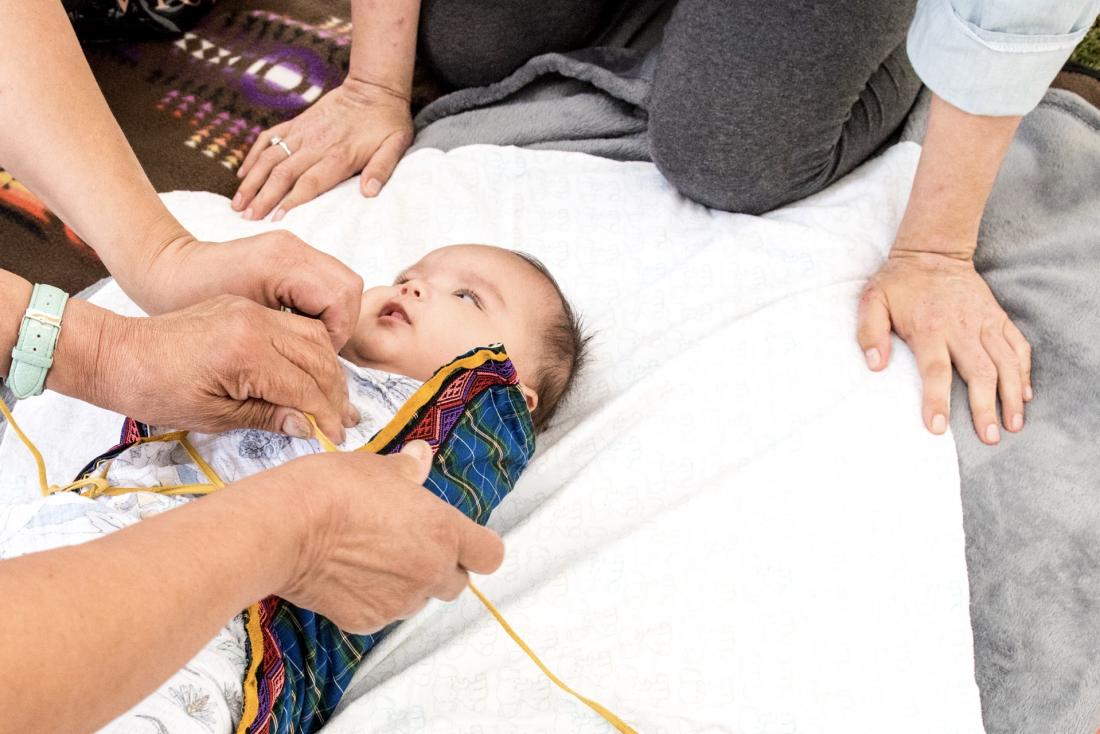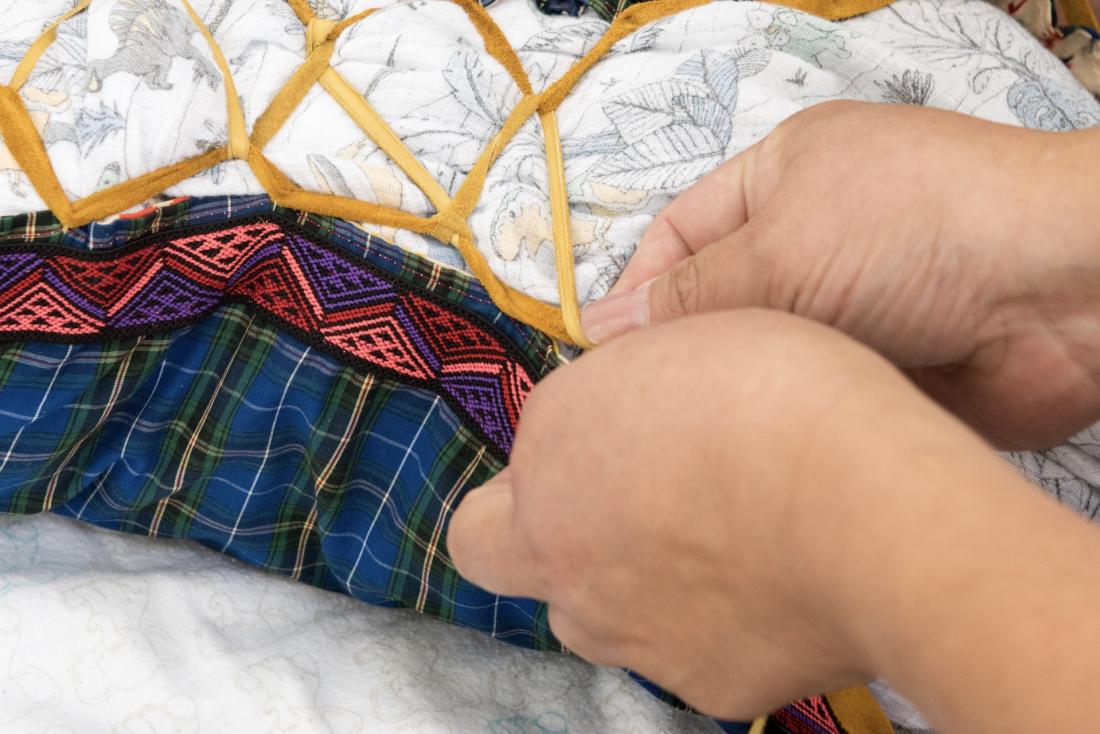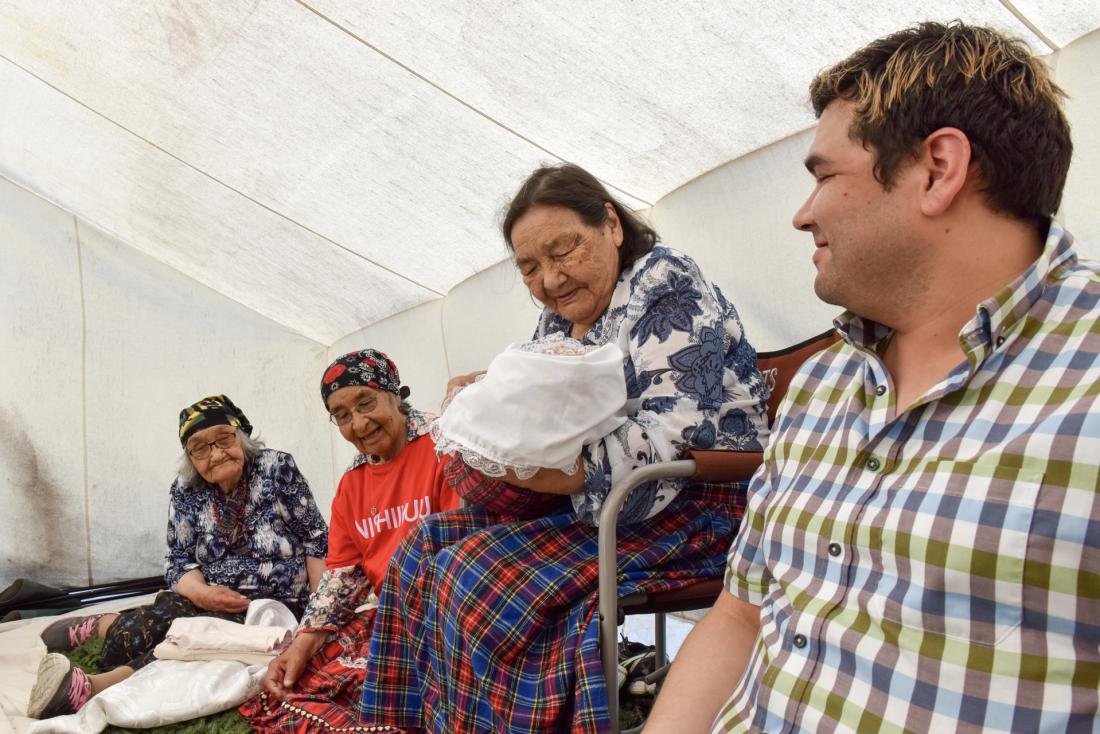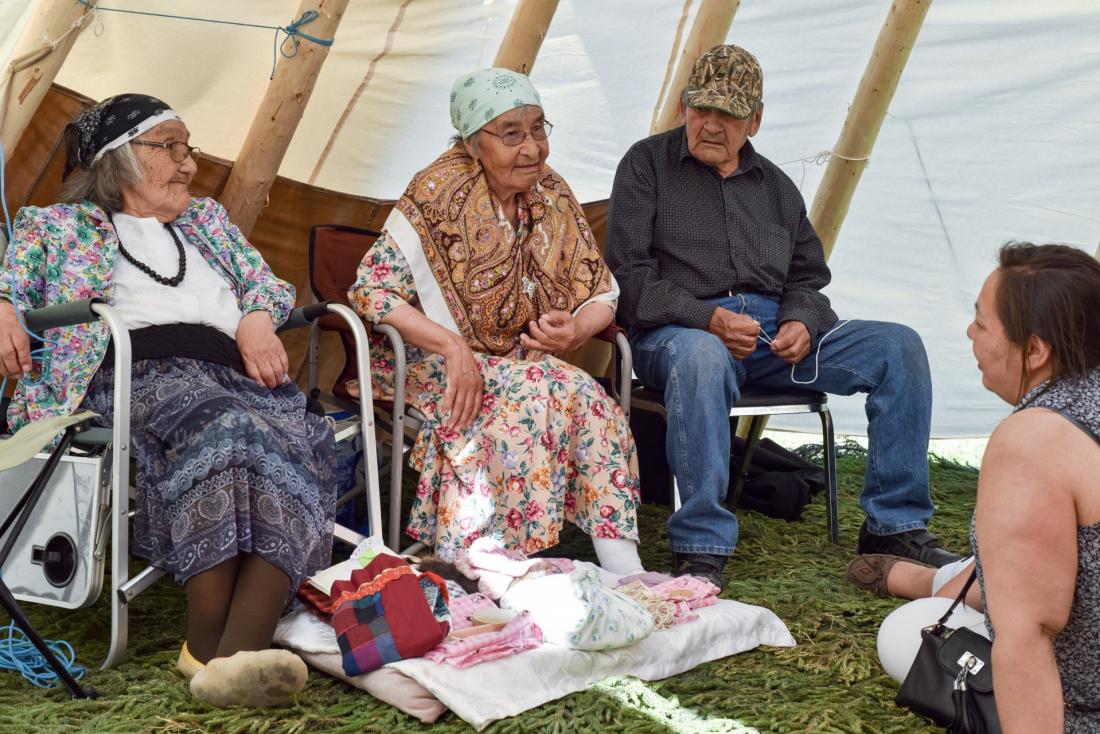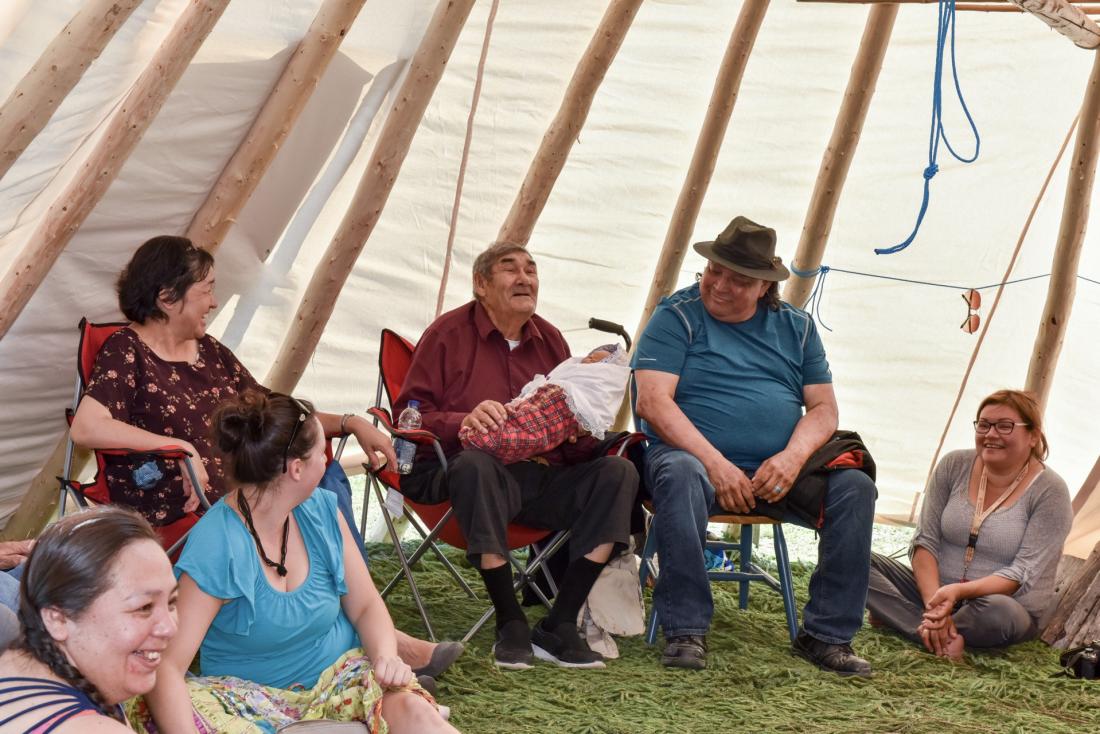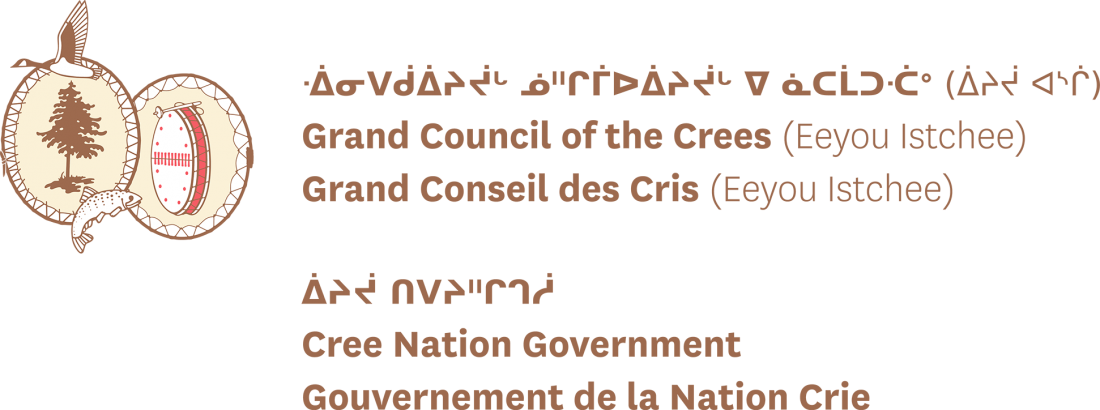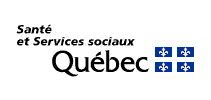Midwifery Education Program
Clara Cooper and Paula Napash talk about the midwifery education program
The Cree Health Board is developing an education program to train Eeyou/Eenou’ch midwives. We are accepting applications for the Midwife Education Program fall of 2023. The program will start in February, 2024 with 4 students.
Midwifery Services Vision Statement
Our vision is to restore Eeyou-Eenou midwifery from root to branch. There will be an Eeyou-Eenou midwife for every family.
To do that:
- our midwives will be clinical and educational leaders with knowledge rooted in local and traditional community knowledge, medicines and land, blended with medical skills
- safe birth anywhere on the land in any kind of dwelling will be supported
- our midwives will trust our bodies and babies and we will trust them
- our midwives and communities will be interconnected and work together, and our midwives will have healthy work/life balance
VIDEOS: ᐄᔨᔨᐅᔨᒧᐎᓐ | IIYIYIUYIMUWIN Learn about midwives, midwifery in Eeyou Istchee and the Midwifery Education Program
Training
The Cree Health Board has an education program to train Eeyou/Eenou’ch midwives.
The training will be consistent with the standards of university programs in the South but adapted for a remote, Northern and Eeyou/Eenou setting. The first cohort will start in February 2024. Four trainees will be selected to start, with others put on a waiting list. As soon as a trainee leaves the program, there are more births on territory or the program expands to other poles, the program will start more trainees.
This program is:
- A mix of old and new. Learned skills will be a blend of modern, medical skills and traditional and cultural skills.
- On-territory. The program will start in Chisasibi then expand to Waskaganish and Mistissini. People can apply from across the region. The program has one 4-bedroom house and will see how it can best house applicants from outside Chisasibi who are chosen. There will probably be some placements in the South in the future.
- Community-driven. An Advisory Group made up of community representatives oversee the program. Community members are consulted at every step.
- Competency-based. Most of the learning is hands-on, starting day one. Mentors will be mostly midwives. Indigenous midwives from across Canada will visit to teach.
- The Canadian Midwifery Regulatory Council, the Ordre des Sages-femmes du Québec and the National Council of Indigenous Midwives outline the competencies midwives must achieve. The Cree Health Board has added clinical and cultural competencies important for the Eeyou-Eenou midwife to have. Once students achieve all the competencies, they will be eligible for a provincial license from the Ordre des Sages-femmes du Québec and can work anywhere in the province.
- Laddered. Students will work at their own pace and achieve competencies in different orders. Trainees need to attend 100 births to graduate.
- Integrates waapimausuun. Training will stem from Eeyou/Eenou’ch traditional and cultural knowledge and practices. Elders and knowledge keepers will mentor students.
- Accessible. Trainees will be hired full-time as Primary Care Community Representatives with on-call/over-time hours and benefits. Cree Health Board policy regarding holidays and sick days will apply.
How to apply
The application process is not yet open. It will be a job posting. When it starts information will be provided to every community. There are no academic requirements to apply, except basic reading and writing in English. Applicants must be 18 years old and Cree beneficiaries.
We will be looking for:
- personal qualities that make a good midwife
- Able to have a long-term commitment and dedication to the program and the profession
- Able to deal with sometimes working long hours and being on call nights and weekends
- Really interested in becoming a midwife
- Good at working independently and reliably
- Fully supported by family and friends
- An understanding of Indigenous midwifery
- Relevant experience from work, school or life
Applicants will need to submit a CV as well as three references. Some applicants will be chosen for an interview. The Cree Nation Government’s Apatisiiwin Skills Development Department can help put together a CV, contact your local Program officer | See here for contact information
Support will be given to make the CV and prepare for the interview. The selection committee is made up of a midwife, the midwifery education program PPRO, an Elder couple, a representative of the Department of Nishiyuu and an Eeyou/Eenou midwifery client.
Questions?
Midwifery Services
History of midwifery in Eeyou Istchee
Traditionally, every Eeyou/Eenou family had a midwife. With colonization, Indigenous midwives were outlawed and pregnant people were evacuated for birth in hospitals in the South with doctors.
Since 2004, the Cree Health Board and Eeyou Istchee communities have worked hard to return birth to the territory. Midwifery Services began in Chisasibi in 2017 with Québecoise midwives providing care. Over 100 babies have now been born in Chisasibi. Plans for expansion of services to Waskaganish and Mistissini are underway. Birth Homes are being built in the three poles.
Indigenous midwifery is going through a period of reclamation and there are now about 100 Indigenous Midwives and 50 students across Canada.
Midwifery Training outside Eeyou Istchee
Most midwives in Canada train in university programs in the South. Université des Trois-Rivieres du Québec is the university midwifery education program in Québec. Cegep Sciences are required for admission and it is taught in French. The program is full-time over four years and is a mix of classroom and hands-on learning.
Graduates are licensed by the Ordre des Sages-femmes du Québec and hired by the Ministry of Health.
Indigenous communities in Quebec can train and license their own midwives. These programs are home-grown. Graduates can be licensed by the Band Council and only work on territory OR they can be licensed like the university graduates.
The oldest community-based Indigenous midwifery education program is in Nunavik and has been running since 1985. Inuk midwives take care of all the pregnant people on territory throughout all the life stages. 95% of Inuit births are on-territory, and they have excellent outcomes.
Explore more
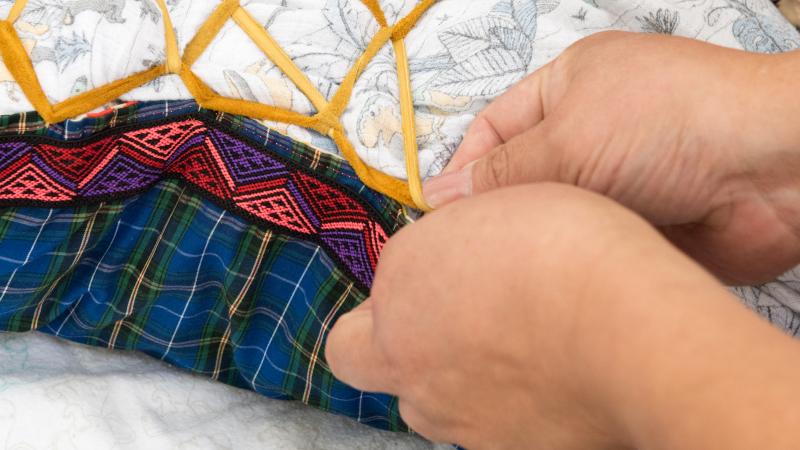
Healthy women having a normal pregnancy can choose to be followed by a midwife based in Chisasibi.
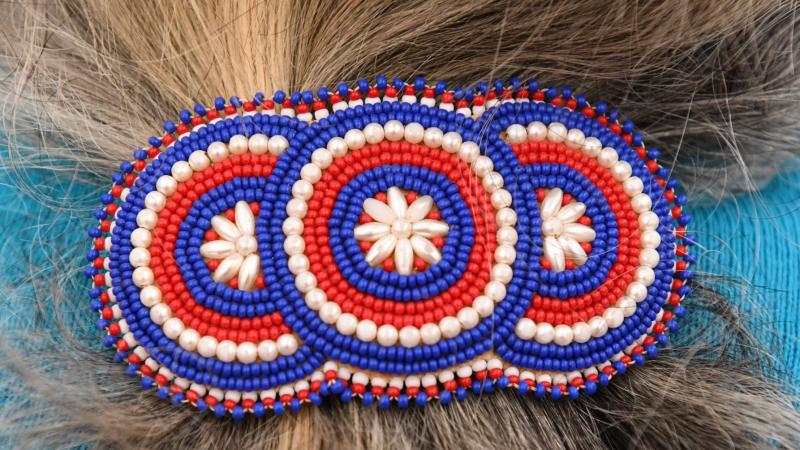
The Nishiiyuu Miyupimaatisiiun department works to ensure that Cree knowledge and values are reflected in CBHSSJB services.
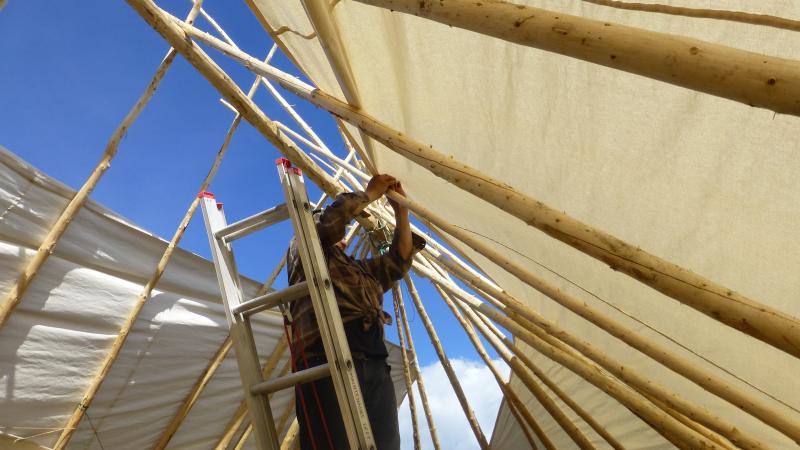
Delivers most of our health and social services to clients in each community.

Helps make our services stronger through good planning, and works on creating healthy communities through partnerships.
